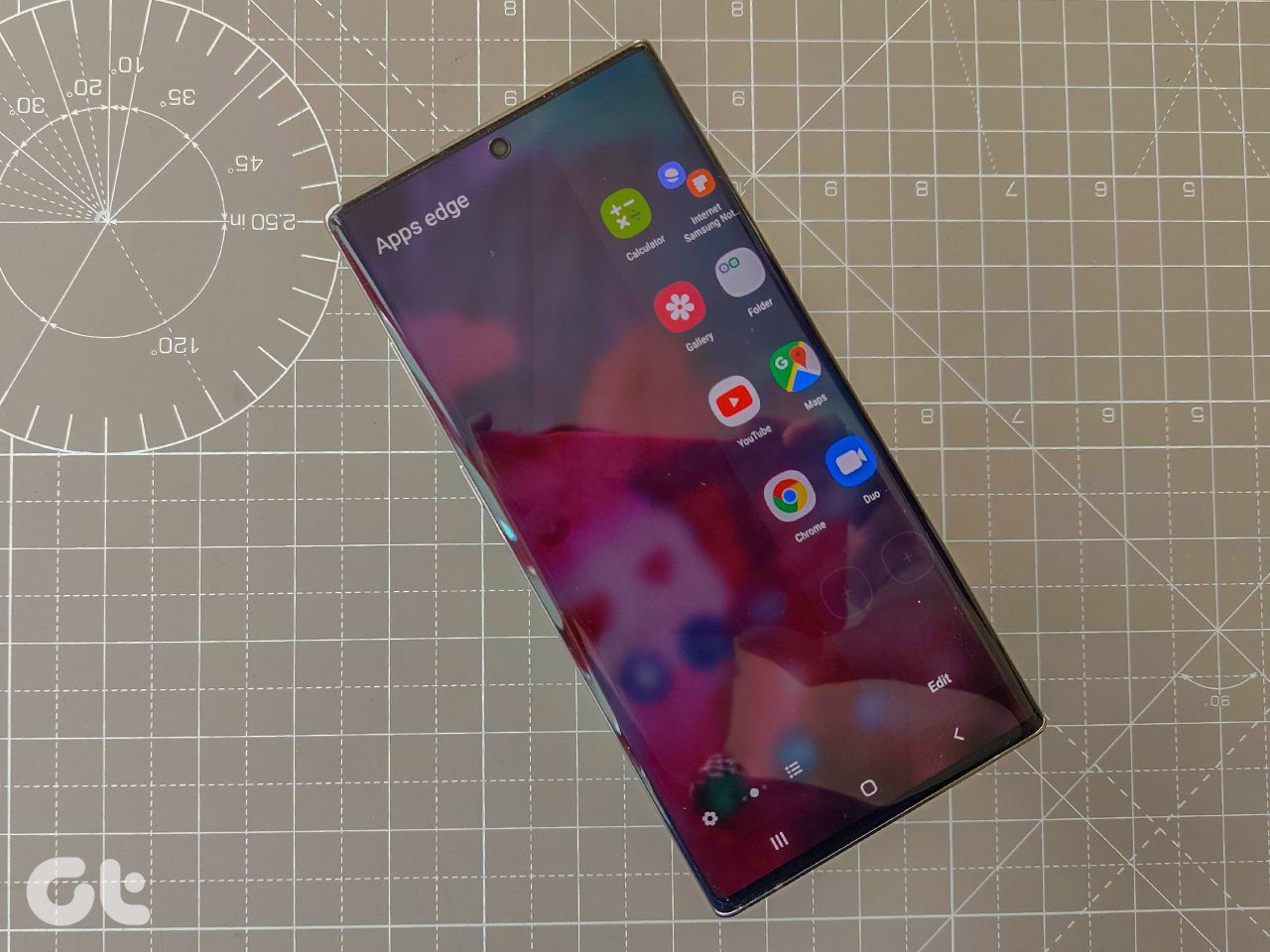It’s not essential that we know all the tricks that a particular tool has in its arsenal. Knowing the few important ones is all one needs for a smoother experience. Features — big or small — play a big role in enhancing productivity. And while it was an arduous task of picking and testing them, we have done it and filed it. Phew! Though you might know some of these, why take the chance of not going through this entire article and missing out on some cool ones, right? Let’s jump in.
1. Dark Theme
The Windows dark theme is one of the newer features of the Windows 10 operating system. It comes in a time when most of us were bored of the ordinary look (read ancient). Initially, the darker theme could be enabled only through the registry, but now it can be achieved with just a few clicks.
Head over to the Settings > Personalisation > Colours, scroll down and choose Dark as the app mode. The dark mode would appear mostly in the settings window, though. But explore the other features of this mode and you might end up with a very different looking desktop.
2. Resize & Unpin Tiles
I love the start menu tiles since the time when they were first launched, providing me with useful insights into the weather, mail snippets, news, Twitter feed, etc. In order to get the most out of it, this live tiles section can be customized to your utmost satisfaction.
For instance, if you want your favorite tile to occupy a much wider berth, right-click on it and choose the resize option. Similarly, for removing right-click and select Unpin from Start. Moreover, with a little tweaking in the Settings app, you can have an almost transparent start menu in Windows 10. Speaking of weather, did you know that just pressing Win+S will show you the weather and news? Well, you know it now.
3. Start Menu Customization
One of the best things about customization is that it lets you achieve a unique look and Windows isn’t far behind. The start menu can be customized in many ways. Right from displaying the recently added apps to the frequently used apps, all these can be turned off/on depending on your choice.
You can also opt to have a full-screen display of the start menu in all its glory through the Use start full screen option. Plus, if you want to get your hands on a sleek start menu, you can start by removing all the tiles and resizing it.
4. Alternate Start Menu
Surely, you must be knowing that you can right-click on the start button to access the Power User Menu, but what if you need it real quick? Just hit Win + X and the menu will pop up. The menu holds a lot of useful apps in its quiver, like Command Prompt, Control Panel, Mobility center, etc. And if you want to use the keys to navigate around, the up/down keys should do the trick.
Another nifty trick to open the tools swiftly is to just press the underlined letter. For instance, hitting P would open the Control Panel.
5. Snap Windows
An impressive feature for the multi-tasker in you. This feature lets you snap the current window to one side and simultaneously open the second one on the other side. Just press Win and right/left arrow key. What’s more, you can just scroll through the windows sans the clicks.
Speaking of multitasking, here’s a quick approach to open the pinned apps,
Win + 1 — first appWin + 2 — second app, and so on.
This feature is incredibly useful to move your active windows when you have a multi-monitor system.
6. The Cortana Search
Cortana, the Windows personal assistant is a powerful aide that can be compared to the likes of Apple’s Siri or Samsung’s Bixby, or the popular Google Assistant. “Microsoft’s voice-activated virtual assistant is more than just a direct link to Bing (or whatever search engine you’ve got her to use) — she’s, well, an assistant.”, writes CNET about this wonderful assistant. And while she can do almost anything right from singing songs (bet you didn’t know that) to setting reminders, you can also customize the way Cortana operates. Whether it’s the type of cards that you want to see or the data that Cortana accesses, there’s a whole bunch of things hiding beneath the notebook icon.
Plus, Cortana handles most of the natural language commands seamlessly. All you have to say is Hey Cortana followed by the query and the humble assistant will do the work for you. While I did face an issue of Siri understanding my accent, Cortana just wowed me.
7. Quick Access Files and Folders from File Explorer
One of the features that I was desperately waiting for and finally, Windows 10 answered my prayers. I find it feasible to have quick access to the recently used folders, but we are humans and we have a great reputation of not thinking alike.
So for those who would NOT like to have an open display of their recently accessed files & folders, there’s quite an easy trick to hide them. Head over to the file explorer and click on View > Options and uncheck the privacy checkboxes. The file explorer will switch to the My PC look.
8. Virtual Desktops
Task View, known popularly as Virtual desktops (VD), was added as a mainstream feature in Windows 10 and trust me, VDs can boost the productivity levels. In simple words, you get to have a number of desktops on your system which you can easily traverse using some handy keyboard shortcuts.
There are a lot third party apps that let you have VDs, but a native one surely beats the odds when it comes to stability and accessibility. The choice is yours as to how you would utilize this space. For starters, you can have a work desktop and an entertainment hub. The TaskView icon, next to the Start Menu, can also be accessed via the following shortcuts. Keyboard shortcuts for VD,
Open TaskView – Win + TabNew Desktop – Win + Ctrl + DClose the current desktop – Win + Ctrl + F4Scroll through VDs – Win + Ctrl + right/left
9. Command Prompt Shortcuts
The previous versions of Command Prompt did a pro-level job of testing your patience. This new version of Windows is the first one from the Microsoft stable to include keyboard shortcuts for Command Prompt. Needless to say, using these shortcuts is easy and effortless.
Ctrl + C / V /A – Copy, Paste , Select AllShift + Page Up / Page DownCtrl + Right/ Left arrow – Text browsing, etc.
10. Annotating in Windows Edge & Calendar Sync.
We tend to mostly research online these days, ending up reading tons of articles. That also means getting lost in the sea of posts and not getting any meaningful work done. That’s when the annotation feature of the Edge browser can come into great use.
It lets you annotate on a specific area of the webpage where you would like to add a note and save the same for later references.
11. Select Audio Source from the TaskBar
On Windows 10, the audio source selection process (if one can call it a process), is neat. It can be done right from the comfort of your current window.
Just click on the volume icon on the taskbar and select the appropriate source. And when you compare it to opening the Audio Properties window and then choosing the audio source, this seems like a cakewalk.
12. Record your PC
Previously, capturing a screenshot or recording a screencast wasn’t possible without the use of third-party software. However, that’s not the case with Windows 10. All you have to do is press Win + G and you will be presented with the tiny Windows Game bar with all the necessary options, courtesy the Xbox app.
Keyboard shortcuts:
Win + G+ PrntScr – ScreenshotWin + Alt + R – Screen Recordings
13. Picture Passwords & PIN
Because conventional passwords are just so passé. On a serious note, we all know the vulnerabilities traditional passwords pose. So, the new sign-in options seem to be an added bonus since it gives you an alternative choice of having a picture or PIN as passwords.
And not just a plain picture, you will need to annotate over three points in the picture — these can be a circle, a stroke or a dot on any random area. As pictures have far more characters, it’s much safer to use them as passwords, provided you don’t use obvious gestures in noticeable places (over the nose and ears).
14. Block Suggestions/ Ads
Of all the possible places that Windows can advertise its products on, it chose the start menu. And if you find these suggestions bothersome, there’s a straightforward solution to block them out — once and for all.
Head over to personalization in the settings menu and turn off the Occasionally show suggestions in Start option (under start) and stay Ad-free.
15. Find my Device
Ever faced the exasperation of tracking a lost device or a silent phone? Well, Windows offers the choice from where one can track the last known location of a device. It works similar to Google’s Device manager.
Compared to the phone tracking, the device search has its limitations. It’ll need your Microsoft Account to log you in, and once done, the last known location of a PC can be tracked. However, unlike Google’s Device Manager, you won’t be able to wipe or lock your device.
16. Filter Clipboard Contents in Command Prompt
Now that command prompt lets you copy-paste texts in a jiffy, chances are that you might end up copying stuff straight off from a browser. And there are equal chances that those texts might have some special characters or an added tab. So what do you do with the unwanted content? Remove them manually? Naah, that’s too old.
Well, there’s a nice little feature in the command prompt properties which automatically removes tabs and unsupported special characters from the copied text (when enabled).
17. Choose Printers
The latest version of Windows allows the system to set any last used printer as the default one. It can be both a boon or a bane for some users. If this setting is an over-kill, head over to the printer settings and turn it off. The system will no longer switch between different printers and will stick to the default one.
18. Active Hour Updates
Windows 10 has come up with this amazing feature which lets you choose the time when you don’t want updates to be installed. It’s referred to as Active Hours and that’s enabled with the proper timings. Get ready to bid goodbye to untimely updates.
19. Block Notifications
Windows PC almost never stops from enlightening you on every single thing, whether it’s a Java update that’s available or a new notification. And like me, if you are annoyed with this feature, there’s an easy way to turn it off.
All you need to do is head over to Settings > System > Notifications and actions and turn it off.
Anything Else?
These were some of the tips and tricks of Windows 10. How many of these were you already using? Any favorites yet? We will be waiting to hear from you. And just so you know, we will always keep you updated with all the latest tweaks as we await the next big update sometime later this year. The above article may contain affiliate links which help support Guiding Tech. However, it does not affect our editorial integrity. The content remains unbiased and authentic.






![]()